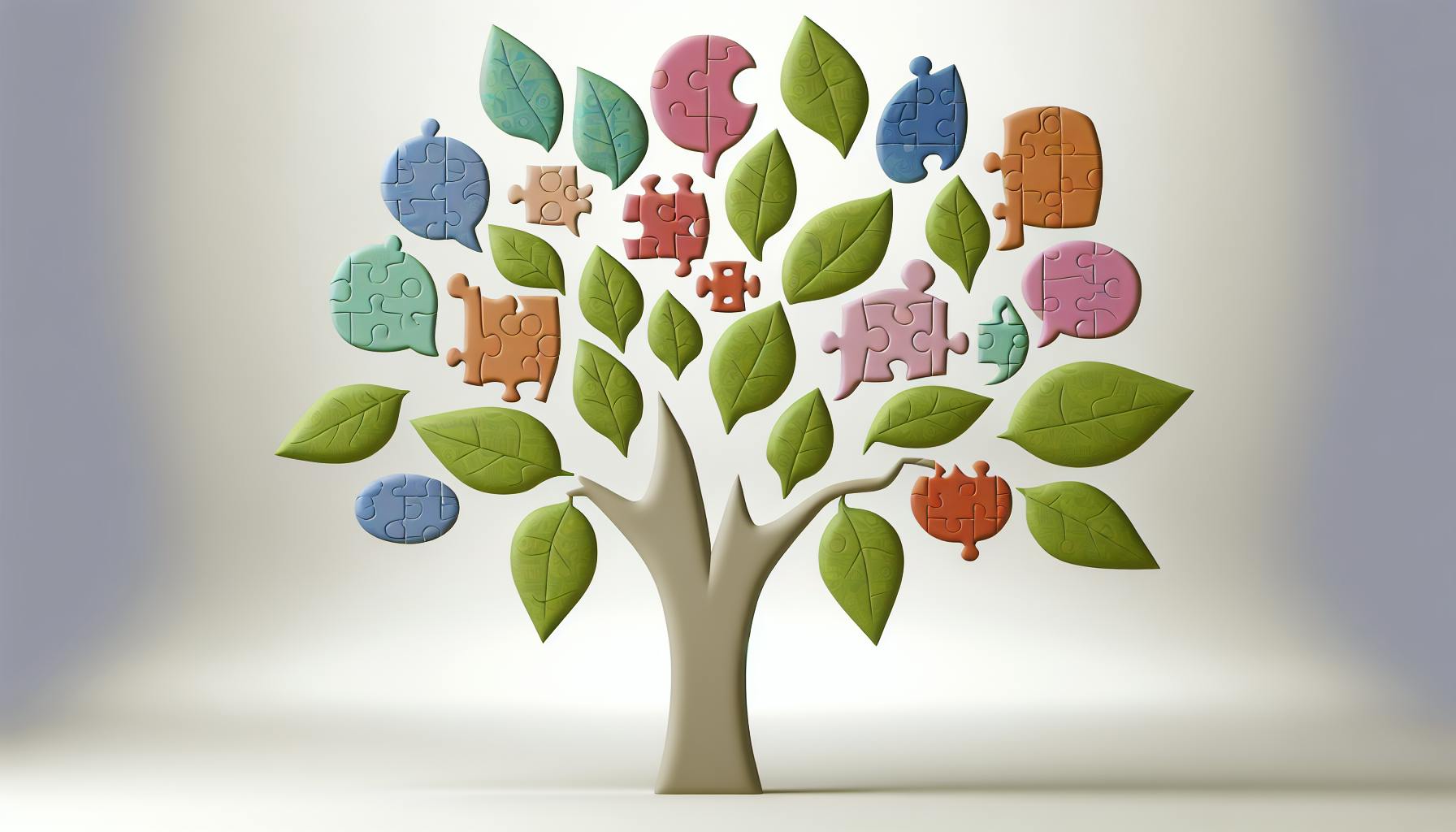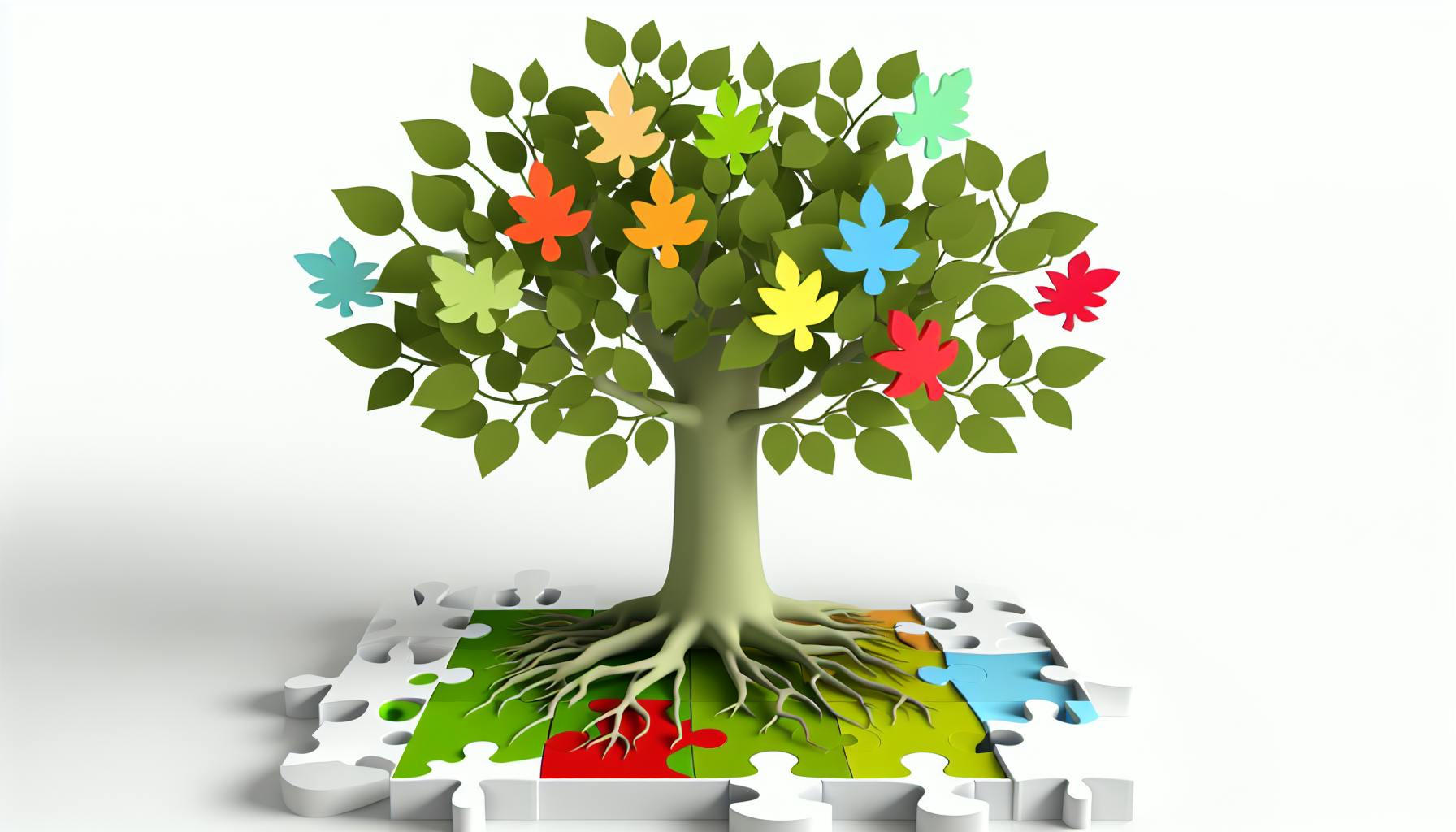With the rapid adoption of artificial intelligence, most organizations agree that AI is transforming recruitment and human resources.
By leveraging AI's capabilities, companies can significantly improve efficiency, quality, and experiences across the employee lifecycle.
This article explores the role of AI in human resource management, specifically examining how it is streamlining recruitment through automating tasks and providing data-driven insights, while also elevating the talent acquisition experience via personalized, unbiased interactions.
Introduction to Artificial Intelligence in HRM
Defining AI and its Promise for HRM
Artificial intelligence (AI) refers to computer systems that can perform tasks normally requiring human intelligence, such as visual perception, speech recognition, and decision-making. In human resource management (HRM), AI enables automation of administrative tasks, data-driven insights into the workforce, and personalized employee experiences. Key capabilities like natural language processing, machine learning, and computer vision allow AI systems to interpret text and images, learn from data, and make predictions.
By leveraging these techniques, AI promises to enhance many aspects of HRM. It can screen resumes, schedule interviews, provide real-time coaching to managers, analyze employee satisfaction, predict attrition risk, recommend learning paths, and more. The end result is improved efficiency, better decision making, and an elevated employee experience.
Current State of AI Adoption in HRM
Surveys indicate moderate but accelerating adoption of AI in HRM. Deloitte found that 33% of companies are currently using AI in HR processes. Adoption is being driven by factors like need for efficiency, data-driven insights, and desire to improve employee retention and engagement.
The leading use cases are administrative tasks, followed by more advanced applications like predicting flight risk. However, AI's full potential in areas like career development, performance management, and DEI initiatives remains largely untapped.
As success stories emerge and technology advances, AI adoption in HRM will continue rising. Gartner predicts that by 2025, 60% of large enterprises will be using AI to assist HR professionals.
The Synergy of AI and HRM
Far from replacing humans, AI enhances the ability of HR professionals to focus on higher-value strategic tasks. AI takes on time-consuming administrative work, while generating actionable workforce insights.
This man-machine symbiosis amplifies HR's impact throughout the employee lifecycle. AI chatbots handle common employee inquiries, freeing HR staff for complex consultations. Intelligent resume screening widens the talent pipeline. Pulsing surveys gauge employee sentiment. Predictive analytics spot high-performers early. And personalized learning platforms accelerate capability building.
Together, AI and human resources create a mutually-reinforcing cycle of better experiences, decisions, and business outcomes.
AI’s Strategic Role in Human Resources
The rise of AI in HRM is elevating HR to a new strategic role where it actively shapes organizational success. Workforce analytics uncover insights that inform executive strategy and planning across the enterprise. Meanwhile, the use of conversational agents and automation for transactional tasks allows HR leaders to focus on initiatives that drive strategic value - like nurturing talent, building an innovation culture, and anchoring diversity and inclusion efforts.
With trusted AI advisors at their side, CHROs can transform into strategists and growth leaders. This new partnership between humans and machines holds the promise of making human capital management smarter, faster, and more predictive - delivering substantial competitive advantage.
What is the role of artificial intelligence in HR?
Artificial intelligence is transforming the field of human resources in several key ways:
Streamlining Recruitment
AI can automate repetitive and time-consuming tasks in the recruiting process so that HR professionals can focus more on strategic initiatives. Some examples include:
-
Candidate sourcing: AI algorithms can search across multiple platforms to identify qualified candidates and automatically reach out to them. This expands the talent pool.
-
Resume screening: Natural language processing enables quick screening of resumes to surface the most promising applicants for open roles based on required skills, experience, and other criteria.
-
Interview scheduling: Chatbots can interact with candidates to schedule interviews, freeing up recruiters.
-
Talent acquisition analytics: AI provides data-driven insights about the recruiting funnel, including bottlenecks. This allows for optimization.
By handling these administrative tasks, AI enables recruiters to spend more time on the human side of hiring - conducting interviews, building culture, and ensuring a good fit. This leads to quality hires.
In summary, AI introduces automation into talent acquisition, leading to greater efficiency, better experiences for candidates, and more strategic hiring by HR professionals. With AI, organizations can scale their recruiting process and make data-driven decisions.
How is AI going to change HR?
AI is poised to transform key aspects of human resources management. By automating administrative tasks, AI frees up HR professionals to focus more on strategic initiatives that drive business value.
Specifically, AI is streamlining critical HR functions like recruiting and talent acquisition. AI-powered tools can source, screen, and even interview candidates at scale far faster than humans. This allows recruiters to spend less time on manual screening and more time building relationships with top talent.
AI is also enhancing the employee experience through personalized learning recommendations, virtual coaching, and sentiment analysis. These innovations create a more customized journey that caters to each individual's strengths and development areas.
As AI handles the more repetitive HR tasks, the role of HR leaders will shift towards more strategic priorities:
-
Choosing and implementing workplace technologies like AI-tools across HR functions to increase productivity and provide better experiences for both candidates and employees.
-
Strengthening employer branding and culture to attract and retain top talent by conveying what makes the organization an appealing place to work.
Adoption of AI is projected to grow. According to McKinsey’s Global AI Survey, companies using AI in HR are reporting improved productivity, better candidate sourcing, reduced turnover, and more. Rather than replacing humans, AI is augmenting HR to help talent acquisition teams, managers, and executives make faster, smarter decisions.
How are companies using AI for HR?
Companies are leveraging AI in various ways to transform and streamline human resource management. Here are some key use cases:
Candidate Sourcing and Screening
AI tools can automate tasks like scraping job boards for resumes, screening candidates, scheduling interviews, and even providing initial assessments. This allows recruiters to focus on more strategic talent acquisition. AI-powered chatbots also engage candidates and collect information through conversational interfaces.
For example, {primary_keyword} can analyze resumes and profiles to match candidates with open positions they are best qualified for. It also screens for culture add based on previous work experience and personality assessments. This facilitates more targeted and efficient recruiting.
Onboarding and Training
AI algorithms can create personalized onboarding checklists and training programs based on role, department, and individual strengths/development areas. Some companies are using AI chatbots as virtual assistants to guide new hires through onboarding.
There are also AI-based training platforms that offer customized courses and microlearning content to develop employees' skills. These adapt to the learner's needs in real-time.
Retention and Engagement
Analyzing various workforce data points enables proactive and predictive retention strategies. AI can identify flight risks, map career progression opportunities, and suggest interventions like raises or development plans.
Sentiment analysis of internal communications and engagement survey responses also provides actionable insights into morale, culture issues, and satisfaction across the organization. This allows HR to address pain points and enhance the employee experience.
In summary, AI is making great strides in recruitment, onboarding, training, retention, and engagement - helping HR not just complete tasks but unlock deeper workforce insights.
How does generative AI affect HR?
Generative AI has the potential to significantly impact human resources in several key areas:
Candidate Sourcing and Screening
-
AI can automate tasks like scraping job boards for resumes, screening candidates, scheduling interviews, and even providing initial assessments. This allows recruiters to focus on more strategic tasks.
-
Generative AI could generate unbiased job descriptions that attract more diverse candidates.
Onboarding and Training
-
Chatbots and virtual assistants can handle frequently asked questions and basic onboarding tasks, creating a smoother experience.
-
AI algorithms can suggest helpful training materials and development opportunities customized to each new hire.
Retention and Engagement
-
Sentiment analysis tools can detect signs of disengagement and churn risk, allowing for proactive intervention.
-
Personalized recommendations for career development, mentors, networking opportunities, etc. can increase engagement.
-
Chatbots provide instant answers to common employee questions and requests.
Overall, AI stands to make major contributions in productivity, efficiency, candidate experience, retention, and inclusion across the employee lifecycle. As the technology continues advancing, it will become an indispensable asset for HR leaders.
sbb-itb-34a8e9f
Streamlining Recruitment With AI
Artificial intelligence is transforming recruitment by automating tedious tasks and providing data-driven insights to hire the best talent faster. Let's explore key areas where AI is improving the recruitment process.
Automating Candidate Sourcing
AI-powered chatbots efficiently screen candidates from job boards and social media, qualifying leads 24/7. Meanwhile, smart algorithms analyze profiles to identify passive candidates open to new opportunities. This expands the talent pool and surfaces quality applicants that recruiters may have otherwise missed.
AI-Powered Resume Screening
By reviewing resumes in seconds, AI can automatically flag qualified candidates based on required skills, experience, education, and more. This is far faster than manual screening and helps recruiters focus on the most promising applicants. AI learns from past screening decisions to keep improving over time.
Conducting Interviews with AI
AI can standardize early video interviews using natural language processing to analyze responses and facial expressions. This takes the guesswork out of assessments and develops accurate candidate profiles. Later stages still involve human interviewers for cultural fit.
Determining the Best Compensation and Benefits Plan
With data-driven insights from past offers, AI modeling helps recruiters benchmark and tailor compensation packages most likely to excite candidates and get quick acceptances. This strategic use of data accelerates the hiring process.
AI/ML-Enabled 'Managers' in Recruitment
AI and machine learning algorithms essentially act as virtual "managers" overseeing the end-to-end recruitment workflow. As more hiring data flows in, these algorithms self-optimize to improve sourcing, screening, assessments, offers, and more. The recruiters' role becomes more strategic.
In summary, AI is transforming recruitment through automation, advanced analytics, and data-driven recommendations. This allows organizations to find better-qualified talent faster while enabling recruiters to focus on higher-impact tasks. The result is a streamlined process that meets talent needs in today's competitive landscape.
Elevating the Talent Acquisition Experience with AI
More Human Interactions, Less Admin
AI and automation can handle high-volume, repetitive screening tasks like reviewing resumes, freeing up recruiters to focus more on building meaningful relationships with candidates. With automation filtering candidates that don't meet basic qualifications, recruiters have more time for substantive conversations to assess cultural fit.
Unbiased Decision Making with AI
AI tools can mitigate unconscious human bias that creeps into hiring decisions. By analyzing historical hiring data, algorithms identify what traits actually correlate with success on the job rather than relying on gut feelings. This promotes diversity and inclusion by basing decisions on skills and potential rather than demographics.
Hyper Personalization in Communications
Powerful data insights on candidates allow for tailored, relevant communication. Recruiters can reference a candidate's unique background when reaching out instead of sending generic templates. Personalized messaging improves candidate experience and increases application-to-hire conversion rates.
AI in Onboarding New Hires
AI is revolutionizing new hire onboarding as well. It can automate tedious paperwork and customize orientation materials based on the new employee's role. As they begin working, AI can even recommend personalized learning pathways to help them skill up faster. This streamlined, personalized onboarding enhances productivity and retention.
AI in Continuous Learning and Development
Tailored Learning Experiences
AI can provide personalized and adaptive learning experiences for employees based on their individual strengths, weaknesses, and goals. By analyzing employee performance data, skills assessments, and career aspirations, AI systems can build customized training programs and curate relevant learning materials for each person. This ensures that employees are getting the specific knowledge and skills they need to develop and grow, leading to improved engagement and retention.
For example, an AI-powered learning platform could track that John excels at sales presentations but struggles with objection handling. It could then serve John learning modules, podcasts, and mentoring opportunities focused on addressing objections, helping shore up that skill gap. Meanwhile, his colleague Lisa might get completely different content based on her areas needing growth.
Career Pathing with AI Insights
In addition to tailored learning, AI has a valuable role to play in career pathing. By mapping employee competencies and aspirations to current and future organizational needs, AI tools can identify potential next moves and development opportunities for each individual.
An AI career pathing system might detect based on sales trends that your company will need more account managers in the next 2 years. If the system identifies that Lisa has strengths fitting an account manager role, it could proactively recommend a development plan to start building the required skills. This allows the organization to build critical talent pipelines while empowering employees with clarity on how to progress their careers internally.
Measuring Learning Impact with AI
AI also lends itself well to precisely tracking the impact of learning programs. By gathering multi-touch feedback and monitoring employee progress on key performance indicators, AI tools can quantify the ROI of training initiatives. They can pinpoint what content and delivery methods are most effective for skill building.
For example, an AI system might determine that when objection handling content is delivered via microlearning it leads to a 10% increase in conversion rates. Meanwhile, longer form learning like mentorships drive more customer satisfaction. These insights allow L&D leaders to optimize learning investments and approaches.
Generative AI for Content Creation
Looking ahead, generative AI could assist with creating personalized, dynamic learning content and scenarios. Rather than relying solely on static, pre-built materials, generative AI models can produce customized courses, microlearnings, role plays, and simulations tailored to an employee's exact needs. This on-demand approach allows for hyper-relevant, personalized development at scale across the organization.
For instance, generative AI could generate a customized role play for John to practice objection handling in his industry and typical sales situations. Meanwhile, Lisa could get an industry-specific customer service scenario tailored to the pain points she encounters. This level of personalization and specificity in learning through AI takes employee development to the next level.
Key Challenges to Consider
Ethical Use of Candidate Data
When leveraging AI and machine learning in talent acquisition, it is crucial that organizations are transparent about how candidate data is used and secure informed consent prior to collection. Candidates have a right to know what types of data are being gathered, how it is processed by AI systems, and how it will inform hiring decisions. Organizations should clearly communicate their data practices, allow candidates to consent to specific uses, and enable them to update preferences. Strict data governance frameworks must be in place to prevent unauthorized access or misuse. Adhering to ethical data practices builds trust with candidates and upholds corporate social responsibility.
Avoiding Algorithmic Bias
AI and machine learning models can unintentionally discriminate against candidates if the algorithms are trained on biased datasets that underrepresent certain demographics. To prevent this, organizations must proactively audit algorithms and test for biases, using diverse and representative datasets that capture all populations. Techniques like adversarial debiasing during model development are also important. Promoting diversity and inclusion throughout the recruitment process is key to countering bias. With vigilance, AI can broaden access to opportunities.
Maintaining High-Quality Data for AI in HRM
The performance of AI systems is only as good as the data that trains them. Poor quality HR data severely impacts the ability to leverage AI in recruitment and human resources management. Organizations must invest in strong data governance, metadata management, master data management, and data quality assurance practices. Establishing processes for periodic data reviews, implementing data validation checks, monitoring KPIs, and enabling data stewards to oversee governance is key. High-quality standardized data is the fuel that powers AI in HRM.
AI and the Future of Human Resource Managers
While AI takes over administrative and repetitive recruitment tasks, the evolving role of HR managers is to be strategic advisors, culture champions, and employee experience curators. As AI handles sourcing, screening, and assessments, HR can focus more on building an end-to-end outstanding candidate experience - from attraction to onboarding. They can also devote time to nurturing corporate culture, facilitating leadership development initiatives, driving retention programs, and acting as employee advocates. Rather than replacing human roles, AI augments them for greater impact. The future of work will involve symbiotic collaboration between humans and AI.
Conclusion and Key Takeaways
AI is transforming talent acquisition by automating high-volume tasks, providing personalized candidate experiences, and enabling data-driven decisions.
Efficiency Through Automation
AI automates repetitive recruiting tasks like sourcing, screening resumes, scheduling interviews, and more. This improves recruiter productivity so they can focus on more strategic priorities. Hiring managers also benefit from faster time-to-fill for open positions.
Enhanced Experiences
With chatbots and two-way texting, candidates now have more humanized interactions throughout the hiring process. AI removes human biases, leading to more objective candidate evaluations based on skills and cultural fit.
Overcoming Human Limitations
Unlike biased human decisions that focus on a few easy observations, AI analyzes hundreds of data points to predict the best candidates. This data-driven approach surfaces overlooked candidates and minimizes discrimination.
The Future of AI in HRM
As AI continues advancing, it will become integral to managing the entire employee lifecycle. From pre-hire to post-exit, AI will enhance productivity, experiences, and decision making across all HRM functions. Companies that embrace this transformation will gain competitive advantages in acquiring and retaining top talent.



